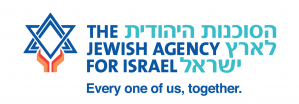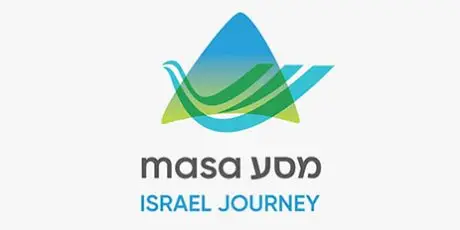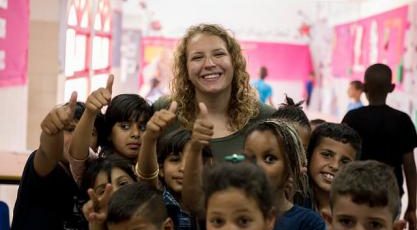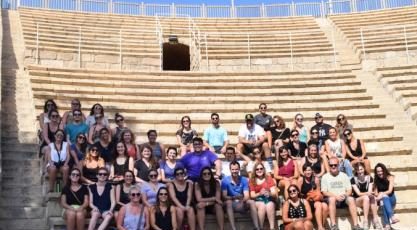By Danielle Meyers, Masa Israel Teaching Fellow in Be’er Sheva
A handful of Israeli fifth graders file into a small room and choose their seats at one of the two-top tables in front of them.
I smile at them with a million dollar American smile. “Welcome to English class!” They shyly smile back, knowing they’ve been specially chosen to take part in my classroom activity. In about 30 seconds, I came to the realization that I had the honest and full attention of these adorable kids. They were hooked from the moment they heard me speak English.
Fascinated by all things pop culture and digital, the children I teach are overwhelmingly curious about anything involving English-isms. Questions of Ariana Grande, the IPhone 6 and Instagram flutter through the classroom as I try to draw order and start a productive lesson.
Although they are familiar with English pop culture, I am one of the first and only Americans that the students are introduced to at an early age. When saying this I can’t help but think, “so what?” It wasn’t like I had real French students coming to my middle school French class as I was trying to conjugate irregular verbs. But unlike American their small amount of exposure to a second language, Israelis start English class in the third grade and continue their studies until the end of high school.
So with English teachers already present in the schools, and from an early age for that matter, what’s my purpose as a teaching fellow? Where do I fit in to this language puzzle? I’m here to impart my native English knowledge on a group of students who may not feel motivated to learn in class or outside of school. Creating excitement around learning English, making it a reward to speak in English and spending quality time with Americans all contribute to something that the Israeli government finds invaluable in the education of young Israelis. And for the students that don’t get time in my class? They have a more individualized attention with their current English teacher, something that doesn’t happen often in a class of 35.
With programs like the one I am a part of existing throughout Israel, it’s hard to believe that the country has a serious education crisis. Although the country’s 75+ years has seen a large growth curve in economy and technology (thanks to Germany and Jews around the world), government spending and policy changes have left a struggling lower and middle class with a severe lack of education.
Education budgets have been slashed– public spending on primary education has fallen below the level of OECD countries – leaving Israel with low educational achievements relative to the developed world.
So why, at the same time budgets are supposedly decreasing, the government is funneling hundreds of thousands of dollars into programs for English speakers like me to come into the schools? Because English is king.

The thriving start ups that are so well known in Tel Aviv, the delegation of security issues and policy changes with other counties and the continuation of communication with Jews around the world are all successful in part because Israelis are able to communicate in English. If Israel has a future on the economic, political and technological stage, English must be at the forefront of second language education.
As I stand in front of my fifth graders, willing and eager to be a part of my life and soak in my culture, I feel tremendously responsible for their future. Maybe I’ll turn some of them from broken to fluent speakers, but most likely I won’t. The best thing that I can do is open them up to the world of English even more than they have done on their own. I can continue to expose them to concepts, cultures and ideas that may not be at their fingertips (although a surprising thought in today’s techno world). And if things get a little boring, I can just tune into some Ariana Grande and call it a day!
Originally published on Danielle’s blog.






